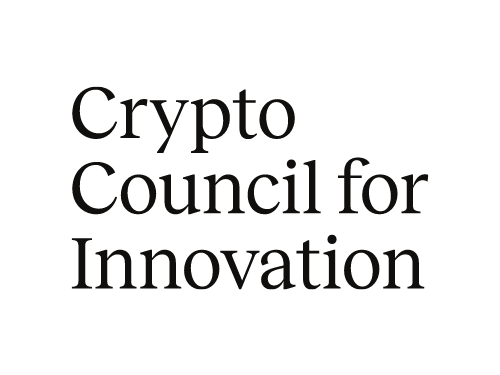
Summary:
- Brazil’s crypto regulatory framework in 2024 includes taxation on overseas crypto holdings, enhancing transparency and compliance in the rapidly growing digital asset sector.
- The Drex CBDC pilot, spearheaded by the Central Bank of Brazil, integrates AI and blockchain technology to streamline cross-border trade, positioning Brazil as a global leader in CBDC innovation.
- Bold initiatives such as the proposed Sovereign Strategic Bitcoin Reserve and the adoption of stablecoins like Meli Dolar demonstrate Brazil’s crypto commitment to leveraging digital assets for economic diversification and financial inclusion.
- More Crypto in Action stories can be found here.
In 2024, Brazil crypto position solidified as the country began integrating decentralized finance with traditional financial systems, setting an ambitious vision for the future of digital finance. As financial systems worldwide grapple with the challenges of incorporating digital assets, Brazil has emerged as a standout innovator, combining regulatory foresight with technological advancements to build a financial ecosystem that is both inclusive and resilient. By embracing blockchain, artificial intelligence, and stablecoin technologies, Brazil is demonstrating how emerging technologies can address long-standing financial challenges, such as inefficiencies in cross-border transactions and limited access to banking services in underserved communities.
Brazil’s crypto transformation is driven by a series of groundbreaking initiatives that underscore its forward-thinking approach to digital assets. The Central Bank of Brazil’s Drex CBDC pilot is a pioneering effort to revolutionize cross-border trade and domestic financial transactions through advanced technological solutions. Additionally, the introduction of progressive crypto taxation laws reflects the country’s commitment to transparency and fiscal accountability, aligning with global trends in digital asset regulation. Meanwhile, the bold proposal for a Sovereign Strategic Bitcoin Reserve signals Brazil’s readiness to embrace cryptocurrency as a key component of its economic strategy. Finally, the adoption of stablecoins for everyday transactions highlights how fintech innovation is driving practical use cases for digital assets, bridging the gap between traditional and decentralized financial systems.
These developments are not only reshaping Brazil’s financial landscape but also positioning the country as a model for others seeking to harness the transformative power of decentralized finance. By fostering a balance between innovation and regulation, Brazil is setting a benchmark for nations aspiring to integrate digital finance into their economies. This blog explores these key advancements, shedding light on how Brazil is leading the charge in creating a more inclusive, efficient, and forward-looking financial ecosystem.
Drex CBDC
The Central Bank of Brazil made significant progress in 2024 with its Drex CBDC pilot, designed to revolutionize cross-border trade and streamline financial transactions. The initiative integrates cutting-edge technologies, including artificial intelligence oracle solutions provided by global leaders such as Chainlink and Microsoft. These innovations enhance the security, efficiency, and transparency of financial operations, ensuring that Drex is at the forefront of global CBDC development.
After launching its first pilot phase in March 2023, the project entered its second phase in October 2024, with full deployment anticipated by the end of the year. This timeline demonstrates Brazil’s commitment to advancing its financial infrastructure at an unprecedented pace. The Drex CBDC not only facilitates smoother domestic and international transactions but also sets a strong foundation for the broader adoption of digital currencies in Brazil and beyond. As one of the world’s most ambitious CBDC projects, Drex is positioning Brazil as a leader in financial innovation.
Taxation of Overseas Crypto Holdings
In 2024, Brazil implemented a landmark policy requiring taxation of overseas cryptocurrency holdings, aligning with international efforts to regulate the rapidly expanding digital asset market. This new legislation mandates that individuals and entities holding cryptocurrencies abroad declare their assets and comply with tax obligations.
The policy reflects Brazil’s strategic approach to promoting transparency and accountability in the digital finance sector. By formalizing these tax regulations, the country is enhancing revenue collection and strengthening its fiscal foundation. Moreover, this initiative underscores Brazil’s leadership in setting regulatory standards for digital assets, positioning the nation as a model for other countries navigating the complexities of cryptocurrency governance. The move also signals Brazil’s intent to create a secure and well-regulated environment for crypto investors, further solidifying its position as a regional leader in digital finance.
Strategic Bitcoin Reserve
In 2024, Brazilian lawmakers introduced a proposal to establish a Sovereign Strategic Bitcoin Reserve (RESBit), a move that could redefine the country’s approach to managing its financial reserves. The initiative would allow Brazil to allocate up to 5% of its international reserves to Bitcoin, diversifying its asset base and enhancing its economic resilience.
The proposed Bitcoin reserve also aligns with Brazil’s broader digital finance strategy, complementing the Drex CBDC by demonstrating a balanced approach to embracing both decentralized and centralized digital assets. If approved, this bold strategy would signify Bitcoin’s growing role in national economic frameworks and highlight Brazil’s willingness to innovate within the global financial system. By integrating Bitcoin into its financial reserves, Brazil is showcasing its commitment to remaining at the forefront of digital finance and signaling to the world its belief in the long-term value of cryptocurrency as part of a diversified economic strategy.
Stablecoin Adoption
In August 2024, Mercado Pago, the fintech division of MercadoLibre, launched Meli Dolar, a dollar-backed stablecoin exclusive to Brazil. This innovation reflects Brazil’s growing acceptance of stablecoins as a practical solution for secure, seamless transactions in everyday activities, such as e-commerce, remittances, and peer-to-peer payments.
Meli Dolar represents a significant milestone in expanding the use of digital assets for practical applications. By introducing a stablecoin that bridges the gap between traditional and decentralized financial systems, Mercado Pago is making digital finance more accessible to the average Brazilian consumer. This development also highlights the role of private-sector innovation in driving the adoption of digital assets in Latin America. Brazil’s openness to fintech-led solutions is paving the way for a future where stablecoins play a critical role in addressing financial challenges and improving financial inclusion across the region.
Brazil’s achievements in 2024 exemplify how a nation can embrace digital finance while maintaining regulatory oversight and fostering innovation. Through initiatives like the Drex CBDC, progressive crypto taxation policies, the Sovereign Strategic Bitcoin Reserve proposal, and the adoption of stablecoins, Brazil is setting a global standard for integrating decentralized finance into traditional financial systems.
These efforts not only bolster Brazil’s domestic economy but also elevate its status on the international stage as a pioneer in digital finance. By showcasing how bold policy decisions and technological advancements can coexist, Brazil offers a compelling blueprint for other nations seeking to navigate the digital transformation of their financial systems. As Brazil continues to lead in this space, it stands as a powerful example of how decentralized finance can drive economic growth, enhance financial inclusion, and ensure a sustainable financial future for all.

























